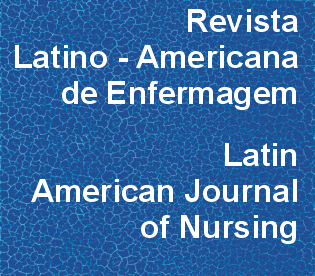Higienização das mãos: o impacto de estratégias de incentivo à adesão entre profissionais de saúde de uma unidade de terapia intensiva neonatal
DOI:
https://doi.org/10.1590/S0104-11692006000400012Palavras-chave:
lavagem de mãos, educação contínua, infecção hospitalar, enfermagemResumo
Com o objetivo de avaliar o impacto do uso de diferentes estratégias de incentivo à higienização das mãos de profissionais de saúde de uma UTI neonatal em Goiânia - GO, realizou-se um estudo de intervenção não controlada, denominado antes-depois. Observados os aspectos éticos, os dados foram coletados, utilizando-se um check list para o registro das oportunidades de higienização das mãos, por seis meses. Utilizaram-se três estratégias de incentivo, construídas com a participação das equipes da instituição. Foram observadas 1358 oportunidades de higienização das mãos. As estratégias de incentivo promoveram pequeno impacto no aumento da adesão à higienização das mãos nos períodos durante e após a sua implementação, sendo que esse aumento ocorreu, predominantemente, no momento posterior à realização dos procedimentos. Na adesão global, os percentuais foram semelhantes antes (62,2%) e após (61,6%) a execução de procedimentos. O estudo sinaliza maior preocupação dos profissionais com o risco individual.Downloads
Os dados de download ainda não estão disponíveis.
Downloads
Publicado
2006-08-01
Edição
Seção
Artigos Originais
Licença
Os direitos autorais são de propriedade exclusiva da revista, transferidos por meio da Declaração de Transferência de Direitos Autorais (presente no Formulário Individual de Declarações) assinada pelos autores. Para a utilização dos artigos, a RLAE adota a Licença Creative Commons, CC BY-NC Atribuição não comercial (resumo ou código completo da licença). Com essa licença é permitido acessar, baixar (download), copiar, imprimir, compartilhar, reutilizar e distribuir os artigos, desde que para uso não comercial e com a citação da fonte, conferindo os devidos créditos autorais a Revista Latino-Americana de Enfermagem. Nesses casos, nenhuma permissão é necessária por parte dos autores ou dos editores.Como Citar
Neves, Z. C. P. das, Tipple, A. F. V., Souza, A. C. S. e, Pereira, M. S., Melo, D. de S., & Ferreira, L. R. (2006). Higienização das mãos: o impacto de estratégias de incentivo à adesão entre profissionais de saúde de uma unidade de terapia intensiva neonatal. Revista Latino-Americana De Enfermagem, 14(4), 546-552. https://doi.org/10.1590/S0104-11692006000400012



